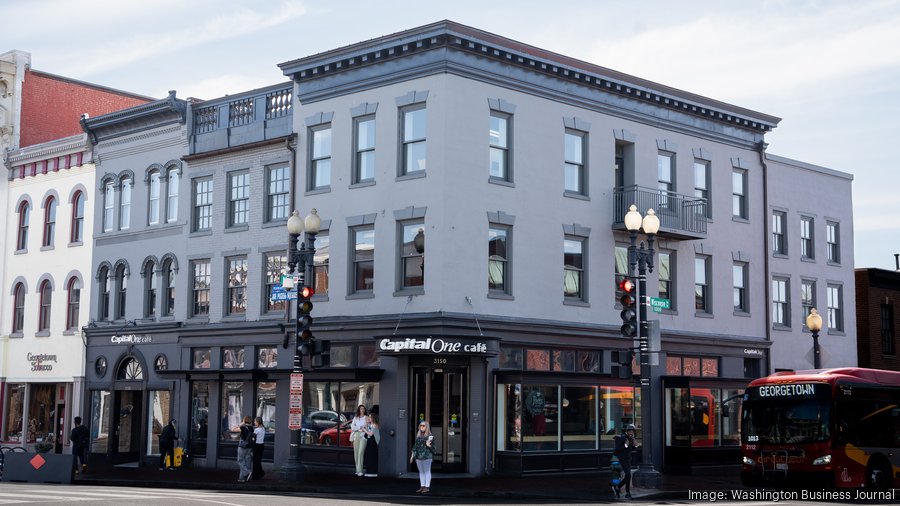Listen to this article 5 min
Capital One Financial Corp.'s deal to acquire Discover Financial Services Inc. for $35.3 billion in stock almost didn’t happen.
McLean-based Capital One (NYSE: COF) announced the blockbuster deal in February, but several times across months of negotiations, Discover rebuffed Capital One's overtures before its board ultimately decided that a merger was in the best interests of its shareholders, according to a document both firms filed with the Securities and Exchange Commission Friday as part of the regulatory review process.
To be sure, the deal still must be approved by banking regulators, and that is hardly guaranteed. It's already facing stiff opposition from some consumer groups and many members of Congress, who say the combination of two of the nation's largest credit card lenders would raise costs for consumers and add more risk the financial system.
Capital One, though, maintains the deal would actually be good for consumers because it would create more competition in the payments space. Apart from absorbing Discover's lending and deposit business, Capital One would gain Discover’s payments network, which under Capital One's ownership would have the scale to better compete with Visa and Mastercard. Lawmakers have long wanted to break up that duopoly to ultimately reduce credit card fees charged to merchants and passed on to consumers.
"We have always had a belief that the holy grail is to be able to be an issuer with one’s own network so that one can deal directly with merchants, and from merchants to consumers," Capital One Chairman and CEO Richard Fairbank said in February, the day after the deal was announced.
Merger discussions began in mid-August when Stephen Crawford, formerly Capital One’s chief financial officer and now-senior adviser to Fairbank, reached out to independent chairman of Discover (NYSE: DFS) Thomas Maheras, to gauge his interest in a deal.
According to Friday's SEC filing, Crawford and Maheras had a few “high-level conversations” about their firm’s business strategies, the climate for financial services companies and the fact that Discover was currently undergoing a search for a new CEO. Its previous CEO John Owen announced he would resign on Aug. 14 after the Riverwoods, Illinois, company disclosed that it had misclassified some credit cards, incorrectly charging some merchants and acquirers the highest rate. It estimated it would owe $365 million in compensation to make up for the misclassification.
Crawford invited Maheras to meet with him and Fairbank in New York on Sept. 13 and Capital One signed on a financial adviser and legal counsel to help it look into a possible acquisition.
In that meeting, Fairbank shared, “his longstanding appreciation for Discover and the potential benefits” of a deal, offering a “stock for stock transaction,” which would amount to a 30% premium on Discover’s stock price at that time. “Mr. Maheras stated that Discover was not actively seeking any combination or other strategic transaction at the present time,” according to the document.
Despite his rejection, Maheras stayed in touch with Crawford and Fairbank. That led to another in-person meeting, this one in the Chicago area on Oct. 24. Fairbank said the offer still stood and Maheras and other Discover directors repeated that they weren’t interested in a deal.
At a third in-person meeting on Nov. 20, Crawford asked Maheras, what the Discover board of directors would require to proceed with a deal. He replied that, again, Discover was not actively looking to enter any combination but if that the the board were to consider a deal, the premium would need to be higher than 30% above Discover's trading price. Crawford, “suggested that Capital One may be willing to engage in a transaction that included a premium of 33%," according to Friday's filing.
Negotiations heated up after that and financial representatives from Capital One’s side drew up a draft of the deal agreement in early December, but then Capital One hit the pause button based on its "due diligence and various other factors," the filing said.
In mid-January, though, talks resumed after Discover's shares fell 11% following disappointing fourth-quarter results. The lender missed analyst expectations and set aside $1 billion in provisions for credit losses due to higher net charge-offs on credit card loans.
Crawford and Maheras placed a target date of Feb. 20 to get the deal signed and finally did so on the afternoon of Feb. 19, agreeing to a price that at the time represented a 27% premium over Discover's stock price. Capital One has said that the final price would represent a premium of no more than 35% and no less than 25% of Discover’s stock price.
If approved, it would be the largest bank merger in the U.S. in the U.S. since BB&T Corp. paid $28 billion for SunTrust Bank in 2019 to form what is now Truist Financial Corp. It would also make Capital One the nation's largest credit card lender by loan volume, vaulting it past rivals Citigroup Inc. and JPMorgan Chase & Co.
The companies have said they expect the deal to close late this year or in early 2025.





